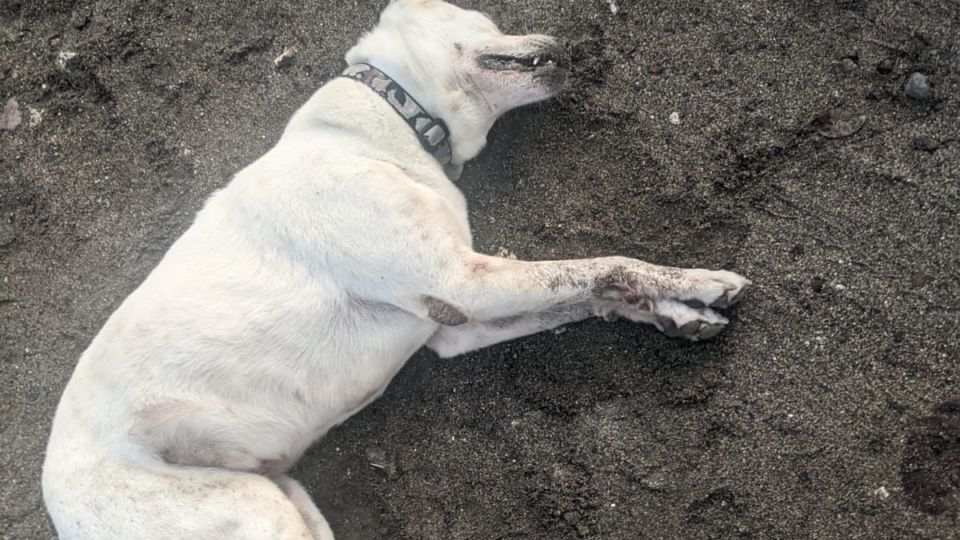For the last six years, 67-year-old Angie Bryce would wake up before 5am and cook chicken meat, chicken liver, and rice for the street dogs along Canggu’s beaches.
Carrying around 25 kilograms of home-cooked dog food in her bag, Angie would then either call her usual motorcycle taxi driver (or, if he’s not available, GoJek) to take her to Perancak Beach, Berawa Beach — popular amongst tourists and surfers — and Nelayan Beach.
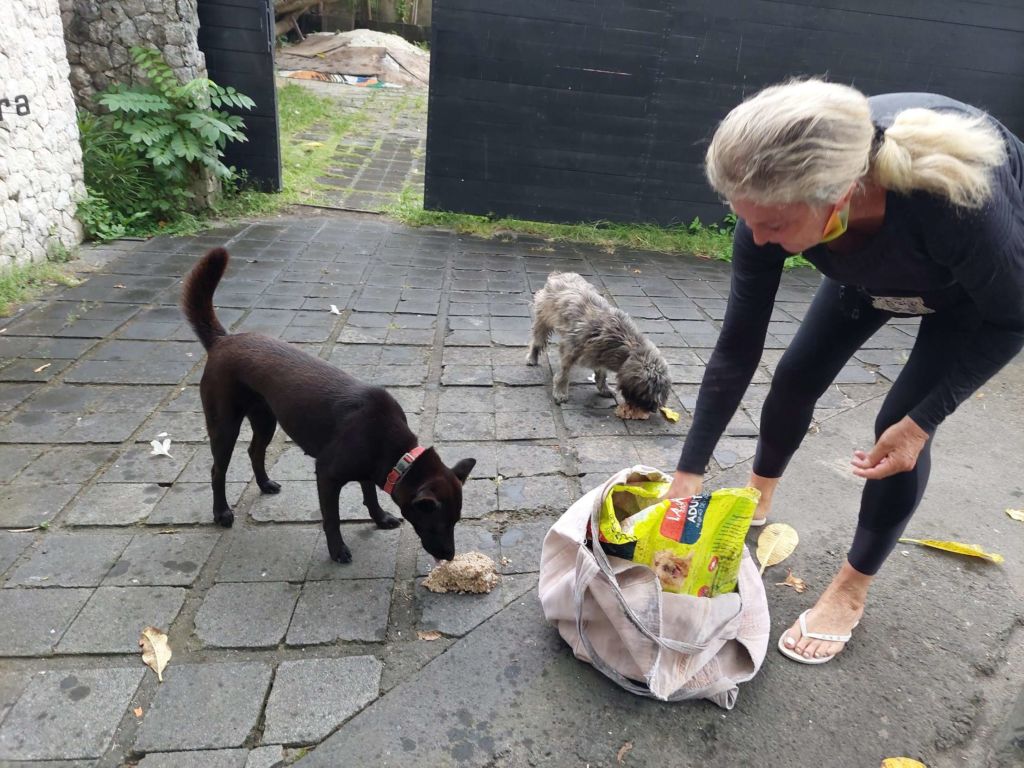
Angie affectionately called the street dogs “furry gypsies.” To her, feeding them is the most spiritual thing she does on the Island of Gods.
“It’s my calling,” the Kiwi told Coconuts over the weekend as we accompanied her during a beach walk.
“My reason for what I do for the furry gypsies was pure love.”
Angie worked closely with some warung (traditional street food and drinks shops) owners and local villa guards who would keep an eye on the street dogs. Some of them even had plates handy so Angie could just leave chunks of dog food there.
In the past two weeks, however, there were fewer furry gypsies to be fed as several of them were dead from rat poison.
On March 22, at around 6:30am, Angie received a picture of one of the dogs, called Old Putih (“Old White”), lying lifeless on the Perancak Beach.
She immediately contacted her feeding partner Natasha, 44, who later rushed to the beach and helped her bury the poor dog.
Exactly a week later, more dogs had been found dead – including several who had owners. All of the owners asked Coconuts not to reveal their identities out of fear of retaliation from whoever killed the dogs.
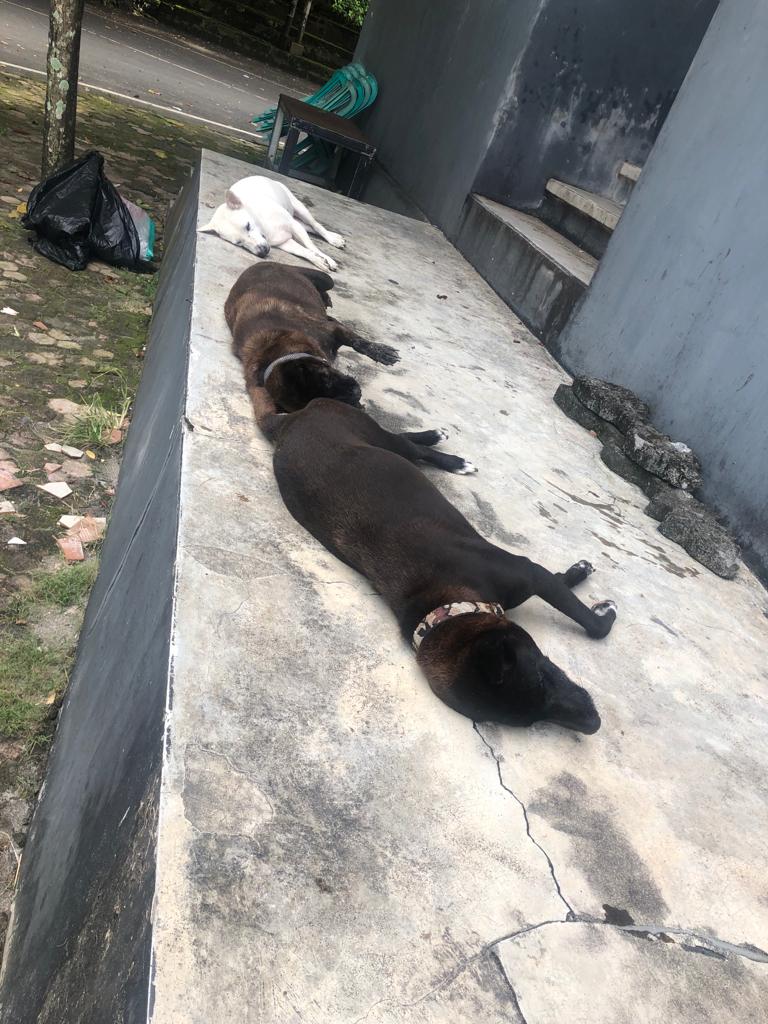
“Both times we found their dead bodies, it was on a Tuesday. Now, I’m scared every time Tuesday comes — what if I find more dead dogs?” Natasha’s voice broke as she spoke.
Natasha, who is originally from Jakarta but has lived in Bali since December 2003, has asked to be referred to by her first name only to protect her identity.
Wayan Bagya, 60, a warung beach owner who took care of some of the poisoned dogs with his wife, Wayan Canise, 60, is understandably heartbroken.
“I love all of them… Sakura, Putih, Pernel. I don’t know how anyone can do what they have done,” said Wayan Bagya.
Wayan Canise interjected: “What were the faults of these dogs? Why were they killed?”
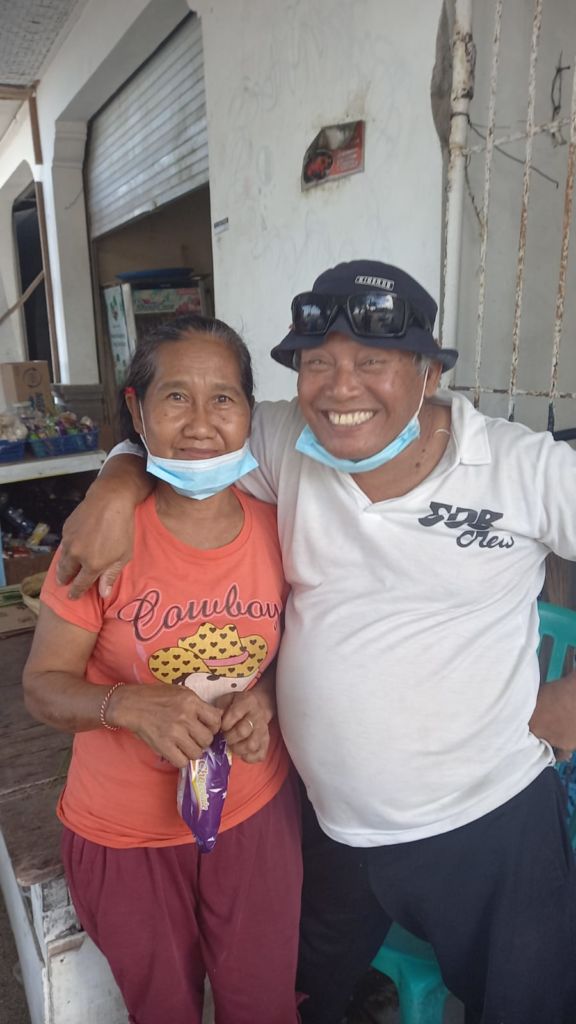
Ten dogs had died of poisoning in total – but this is only on Perancak Beach alone. More and more pet owners reported dogs being poisoned in other parts of Bali, such as Gianyar and Tabanan.
Note that while the culling of dogs is nothing new on an island with a considerable number of rabies cases (a student died last month in Jembrana from a rabies infection), the parade of bad news of furry friends being killed this time happened as Bali began opening up for international visitors.
“The dogs killed this week in the Berawa area were healthy, sterilized, and rabies vaccinated,” Bali Animal Welfare Association (BAWA) founder and director Janice Girardi told Coconuts.
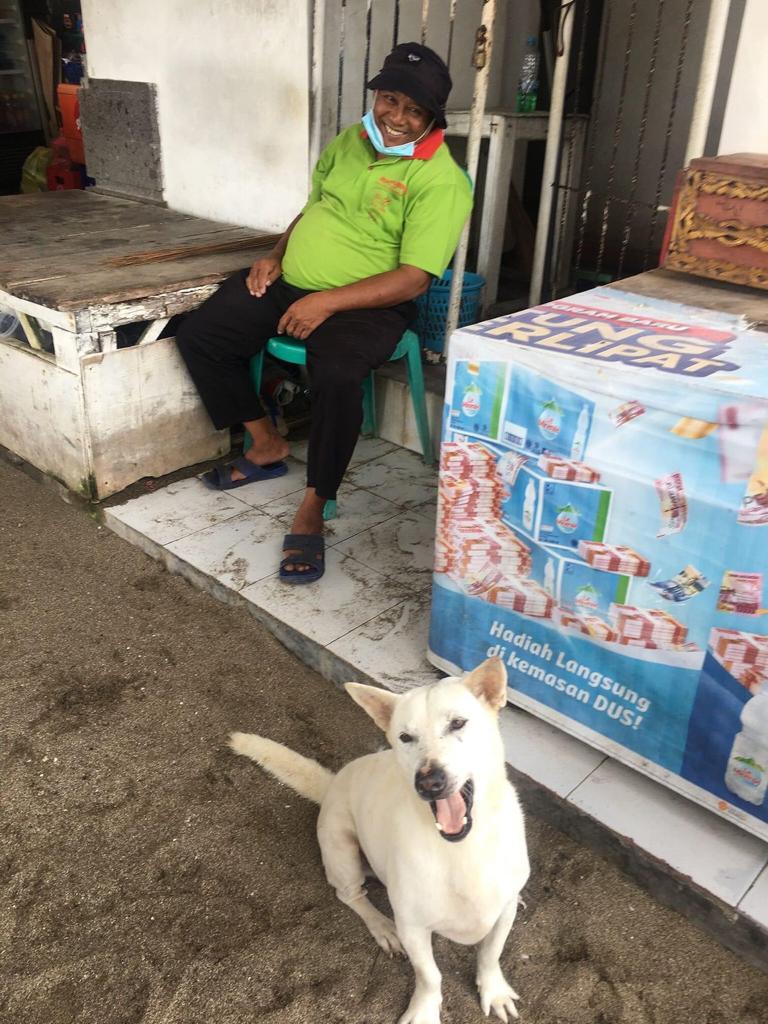
Emphasizing that the dogs that were killed were gentle, cared for, and loved, Girardi said that murdering them was “a great disservice to the Balinese community.”
“In a time when Bali is desperate to see international tourists return, this kind of behavior is deeply damaging to Bali’s global image. Many of the same tourists who love to visit these and other dogs on the beach, bringing treats and presents, have told us they will not return to Bali again because they can’t face this ongoing cruelty,” Girardi said.
Girardi reminded people that dog have been part of Bali’s landscape for thousands of years.
“The number of dogs is not inherently the problem, but the unscrupulous dog breeders and the people who abandon them when they are sick, no longer of use, or too expensive to care for, completely unaware of the repercussions and what a dramatic, negative effect this has on the entire animal population and the human population too,” she said.
“Murdering innocent dogs is never the right answer,” she added.
I Gede Agus, the Berawa kelian (Balinese traditional village top official), said that he has not found the perpetrators behind the murders.
“I already asked Berawa residents, they also didn’t know [who killed the dogs]. Perhaps it’s an outsider,” he said, adding that he also owns two dogs at home.
Gede Agus said that the street dogs roaming around Pemelisan Agung Street near Perancak Beach were most at-risk. When asked for a possible motive behind this dog cruelty, Gede Agus was only able to offer a theory.
“Maybe because the population of beach dogs as well as the area of Perancak temple [both are] increasing,” he said, adding that he hoped dog lovers would adopt all of the beach dogs.
Contacted separately on Monday, Badung Tourism Agency Chief I Nyoman Rudiarta said his office had not received any official reports about the grim situation – he encouraged people to do so to get officials to act.
“If someone is really poisoning street dogs, then it can ruin Bali’s tourism image. Many travelers are animal lovers. [We must] not let this situation backfire on us,” he said, before adding that the street dogs need supervision.
Rudiarta, who was the Chief of Kuta District last year, said that he is familiar with the situation. He said that when he headed the district, he often received complaints about canine excrement to the point that local village officials put up signs to warn tourists from bringing their pets to the beaches.
“There was also input from the dog lovers community that said those dogs should be taken care of,” said Rudiarta, adding that there was mass rabies vaccinations under his term, and dogs who were vaccinated were given collars.
“As far as I know, there are dog lovers who feed the street dogs to the point of there are shifts,” he said.
Those dog lovers include Angie and Natasha. Both women were disheartened by the whole situation and decided to focus on finding good homes for them.
“All we want is to ensure the safety of the remaining dogs,” said Angie, while Natasha nodded.
In a statement sent to Coconuts, People for the Ethical Treatment of Animals (PETA) Asia Senior Vice President Jason Baker said the organization found the situation “inconceivable.”
“PETA strongly urges the local authorities in Canggu to investigate the crime and bring the perpetrator(s) to justice,” Baker said.
He added that PETA is not planning to launch its own investigation toward the poisoning, but “will assist” anyone who can provide information about the crime’s perpetrator or motives behind it.
